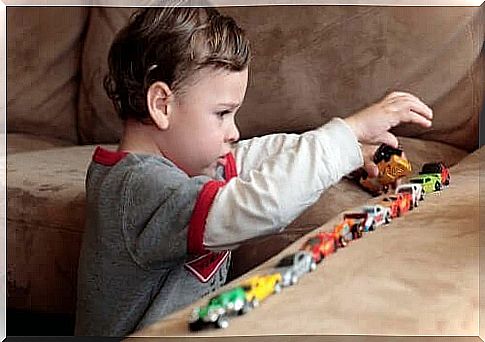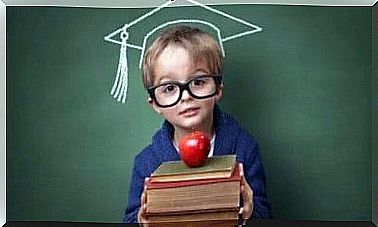I Have Autism, But I Can Learn

Every April 2nd, World Autism Awareness Day is celebrated in order to make this condition visible and fight for the rights of those who suffer from it. In 2020, under the motto “I can learn, I can work”, the objective was to seek better access for these people to quality education and decent jobs, as stigma still continues to limit their development. Therefore, let us be the voice of all these little ones: “I have autism, but I can learn” .
Often, due to lack of knowledge, we have the wrong idea of this disorder. The intelligence tests that are commonly used fail to fully grasp the latent abilities of these people.
Furthermore, we must consider that this condition is very heterogeneous, that is, it is not possible to generalize. However, all children with autism have virtues and abilities, and without a doubt, they can learn.
Autistic Spectrum Disorder
Autism is a neurological and developmental condition that begins to manifest itself in childhood and follows the person throughout life. It mainly affects social interaction and flexibility of thinking and behavior.
However, there is enormous variability among people who have this condition. This is why the term ‘Autistic Spectrum Disorder’ is adopted, as it suggests a continuum rather than a category.

To a greater or lesser degree, the main characteristics of autism are known to everyone:
- Disinterest in social interactions and difficulty in initiating and maintaining them. Poor eye contact and trouble noticing and understanding others’ mental states.
- Repetitive behaviors, restricted interests and excessive rigidity, as well as clinging to routines.
- Sensory integration issues, suffering from exposure to loud noises, bright lights or crowds.
Because of all these factors, children with autism have major problems integrating into classrooms and society. It may seem that they are not capable of learning just because they do not learn in the same way as others, but these children have great virtues :
- They pay a lot of attention to detail and use very logical thinking.
- Generally, they show great interest in a specific area, which they study deeply and about which they accumulate great knowledge, becoming very skilled in it.
- They have independent thinking that allows them to contribute with different and innovative perspectives.
- They experience difficulties in processing verbal or auditory information, but they work well with visual processing (from images or videos).
I have autism but I can learn
Children with autism are able to learn, have fun and lead dignified and fulfilling lives. For this, it is essential to establish the diagnosis as quickly as possible. This will allow us to give the child access to quality early care.
The little ones who are involved in this work from an early age can experience great advances. Interventions are usually aimed at improving their social skills and abilities, as well as facilitating their adaptation to the school environment.
For this, it is necessary to carry out an individualized assessment in order to know the child’s strengths.

Intervention
If the child can handle visual processing better, it will be very beneficial to follow the instructions with pictures.
Likewise, if she shows a clear interest in reading, it can serve as a starting point for establishing a bond of trust and for fostering a rapprochement with her classmates through an activity she enjoys and excels at. well.
We must provide an environment in which they feel comfortable, that is suited to their priorities and needs. It is important that they are not very large groups so that they can receive sufficient attention from teachers. In addition, you need to offer challenges that match your abilities.
If we demand standard performance, they can feel overwhelmed and frustrated, but if we provide too much support, we can limit the development of their autonomy. So the idea is to find a balance.
Empathy, positive reinforcement, perseverance and early intervention will greatly help these little ones to learn. Families and health and education professionals must join forces to provide these children with access to a diverse and tailored education that allows them to develop to their full potential.









